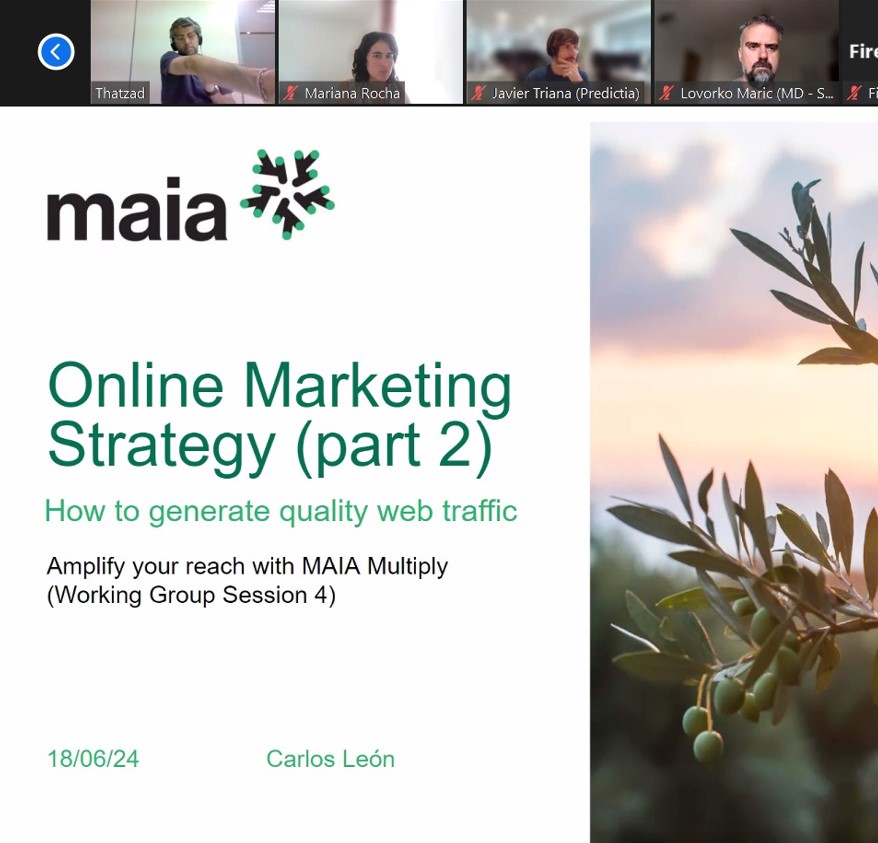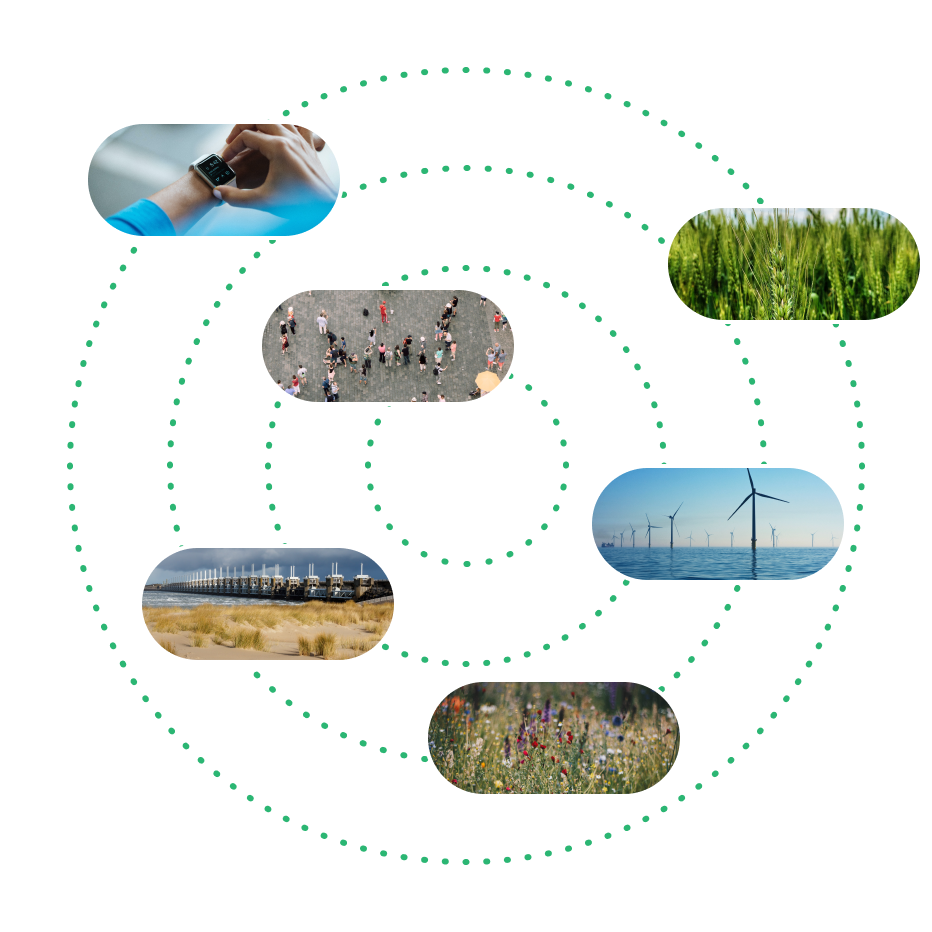MAIA holds its 3rd and 4th Thematic Working Groups on Communication

In May and June, 2024, the MAIA project continued with its series of 6 Thematic Workshops on Communication. These sessions are designed to create synergies between EU-funded climate change research projects, as well as share resources and provide training to improve their communication, branding and marketing.
The third and fourth sessions focused on digital marketing and were attended by the following projects:
- Project Agora, which works to communicate climate change to marginalised groups, the elderly, and other civil society groups, promoting inclusivity.
- The Localised Project, which creates tools for businesses, small/medium communities, and cities to reshape local decarbonization and adaptation planning. Read the full article for more details.
- Holistic, which explores holistic use of scientific models and scenarios for energy and environmental planning.
- The EERIE Project, which explores the role of ocean eddies in climate.
- ESM2025, which is creating a new generation of Earth system models to support development of mitigation and adaptation strategies in line with the commitments of the Paris Agreement.
- Silvanus, which supports regional and national authorities with wildfire management.
- Predictia, which uses Big Data y Machine Learning to develop solutions for sectors like climate, meteorology and health.
During the sessions, MAIA Work Package 5 partner Carlos León, General Manager of Thatzad, outlined digital marketing strategies such as:
- The need to define and segment our target audience.
- Main marketing channels, such as social media, websites, Google Ads, etc.
- The need to focus on the user, not the project when presenting ourselves online or creating content.
- The need to set clear objectives and track website analytics using tools like Google Analytics to measure web traffic, conversions and traffic quality. Also, how to define conversions and micro-conversions to measure the success of our marketing campaigns.
- Search Engine Optimization (SEO) strategies such as the use of long-tail keywords, link building and internal linking to optimise website performance and position online content so it reaches our audience.
- Search Engine Marketing, including how to create online ads for Google and social media.
- The recommendation to create an editorial calendar for regular communications and content creation.
- Tips to use AI and repurpose content in a variety of formats to overcome the challenges of limited time and resources.
- Networking and collaboration to build an audience, particularly through events or partnerships with influencers and other actors in the field.
In both sessions, there followed discussions focusing on common needs and challenges faced by the projects when it comes to communicating online. Specifically, due to a lack of time and resources.
Participants also commented on the challenges involved in creating content and reaching their audience before they have concrete results to share. Projects like Silvanus then shared examples of best practices and solutions to the challenges. For example, networking with other projects in their field to grow their audience and identifying the social media channels that work for them.
To participate in an upcoming Thematic Working Group, please contact glorenzoni@inmedia.es
MAIA is a Horizon Europe project that acts as an impact multiplier for climate research projects funded under Horizon Europe and Horizon2020 programs. It brings together the experience of several carefully curated Horizon 2020 projects that focus on innovation for climate resilience, including BINGO, BRIGAID, CLARITY, Connecting Nature, DRIVER+, PLACARD, and RESCCUE. The primary objective of MAIA is to make the current dispersed knowledge more interoperable, accessible, and usable and to render the outcomes economically sustainable.
Follow us on social media

Comments
There is no content